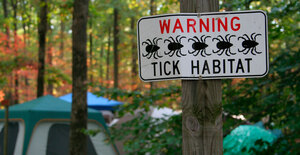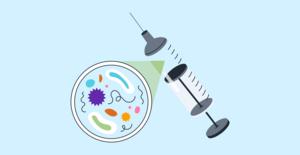Key points
- Newborn congestion, caused by factors like colds, allergies, and environmental irritants, can affect a baby's ability to breathe, eat, and sleep comfortably.
- Signs of nasal congestion include trouble eating, snoring, and visible thick nasal mucus, while chest congestion signs include wheezing, rapid breathing, and persistent coughing.
- Home remedies for nasal congestion include saline drops, gentle suction, cool mist, frequent feedings, and warm baths.
- It's important to seek medical attention if the baby shows signs of respiratory distress, high fever, ear or sinus pain, or if the baby is younger than three months old.

Newborn congestion can be a common and concerning issue for new parents, as a stuffy nose can make it difficult for your baby to breathe, eat, and sleep comfortably. There are various reasons why a baby might experience nasal congestion, according to the American Academy of Pediatrics (AAP) — ranging from common colds and allergies to environmental irritants. While many cases of congestion can be managed at home with simple remedies, it’s important to recognize when medical attention is necessary, especially if the congestion is severe or accompanied by other symptoms.
Signs and causes of nasal congestion in a newborn
According to the AAP, babies can experience nasal congestion, chest congestion, or both, which can lead to discomfort and difficulty breathing. Recognizing the symptoms and identifying the underlying causes can help you take appropriate action to alleviate your baby’s congestion. Below are some common signs and causes associated with nasal congestion in infants according to the AAP:
Signs of nasal congestion
-
Trouble eating or feeding due to difficulty breathing
-
Snoring or noisy breathing during sleep
-
Thick nasal mucus that may be visible during feedings or when wiping the nose
Causes of nasal congestion
-
Allergies to dust, pollen, or pet dander
-
Common colds or viral infections
-
Dry air, especially during winter months or in air-conditioned environments
Signs and causes of chest congestion in a newborn
Chest congestion in newborns is a more serious concern that often requires medical attention, as it can indicate underlying respiratory issues that may affect your baby's overall health. Unlike nasal congestion, which is typically manageable at home, the AAP notes that chest congestion can lead to complications if not addressed promptly. It's important for parents to be vigilant about the signs and causes of chest congestion to ensure their baby receives the appropriate care. Below are some common signs and causes associated with chest congestion in infants:
Signs of chest congestion
-
Wheezing or a high-pitched whistling sound during breathing
-
Rapid or labored breathing, indicating difficulty in getting enough air
-
Persistent coughing that may worsen over time
Causes of chest congestion
-
Asthma, which can be triggered by allergens or respiratory infections
-
Pneumonia — a serious infection that inflames the air sacs in the lungs
-
Respiratory Syncytial Virus (RSV), a common virus that can lead to severe respiratory illness in infants
5 ways to treat congestion on a newborn at home
When your newborn is experiencing nasal congestion, there are several effective home remedies that the AAP explains may help alleviate their discomfort and promote easier breathing. These methods are generally safe and can provide relief without the need for medication. It’s important to approach treatment gently, keeping in mind the delicate nature of your baby's health. Below are some home remedies that the AAP suggests can be helpful in treating nasal congestion in a newborn:
Saline drops
Using saline drops can help moisten the nasal passages, making it easier for mucus to drain. Simply place a few drops in each nostril, allowing the saline solution to loosen any thick mucus.
Gentle suction
After using saline drops, you can use a bulb syringe or nasal aspirator to suction out the loosened mucus gently. Do this carefully to avoid irritating your baby's sensitive nasal membranes.
Cool mist
A cool mist humidifier can add moisture to the air, which can help soothe nasal passages and reduce congestion. Ensure that the humidifier is clean to prevent the growth of mold or bacteria.
Feeding
Offering your baby frequent feedings can help keep them hydrated and may also encourage swallowing, which can help clear nasal passages. If your baby is having trouble breastfeeding or bottle-feeding, try feeding them in a more upright position.
Warm bath
A warm bath can be a comforting experience for your baby and the steam from the warm water can help loosen mucus in the nasal passages. The warm water can also provide a soothing environment for relaxation.
When to see a doctor
While many cases of nasal congestion in newborns can be managed at home, there are certain situations where seeking professional healthcare is essential to ensure your baby's well-being. It’s important for parents to be aware of specific signs and factors that may indicate a more serious condition requiring medical attention. If you notice any of the following symptoms, it’s advisable to consult your pediatrician for further evaluation and treatment according to the AAP:
-
Your baby is experiencing ear or sinus pain, which may be a sign of an infection.
-
Your baby is younger than three months old, as younger infants are more susceptible to complications from respiratory issues.
-
Nonstop coughing is keeping them from sleeping, eating, or playing, indicating significant respiratory distress.
-
Your baby has a high fever (typically over 100.4°F or 38°C) that persists despite home care measures.
-
You notice any signs of difficulty breathing, such as rapid breathing, wheezing, or retractions (the skin pulling in around the ribs during breathing).
When to go to an emergency room
In certain situations, nasal congestion in a newborn can escalate to a life-threatening condition, making it crucial for parents to recognize when immediate medical attention is necessary. According to the AAP, if your baby exhibits any of the following signs, it is imperative to go to an emergency room or call 911 right away. Quick action can be vital in ensuring your baby's safety and health:
-
Your baby is struggling for each breath, showing signs of respiratory distress.
-
They can barely make sounds or cry, indicating severe difficulty in breathing.
-
Your baby has bluish lips or face, which may suggest a lack of oxygen.
-
You notice extreme lethargy or unresponsiveness, as this could indicate a serious underlying issue.
-
Your baby is experiencing a high fever along with severe respiratory symptoms, warranting urgent evaluation.
Urgent care near me
If you're concerned about your baby's health and need immediate assistance, don’t hesitate to seek help. Solv is here to make finding urgent care easy and convenient.
FAQs
What are the common signs of nasal congestion in newborns?
The common signs of nasal congestion in newborns include trouble eating or feeding due to difficulty breathing, snoring or noisy breathing during sleep, and thick nasal mucus that may be visible during feedings or when wiping the nose.
What can cause nasal and chest congestion in newborns?
Nasal congestion in newborns can be caused by allergies to dust, pollen, or pet dander, common colds or viral infections, and dry air, especially during winter months or in air-conditioned environments. Chest congestion, on the other hand, can be caused by asthma, pneumonia, or Respiratory Syncytial Virus (RSV).
How can I treat my newborn's nasal congestion at home?
Home remedies for nasal congestion in newborns include using saline drops to moisten the nasal passages, gentle suction to remove loosened mucus, a cool mist humidifier to soothe nasal passages and reduce congestion, frequent feedings to keep the baby hydrated and encourage swallowing, and a warm bath to help loosen mucus in the nasal passages.
When should I seek medical attention for my baby's congestion?
You should seek medical attention if your baby is experiencing ear or sinus pain, is younger than three months old, has nonstop coughing that is keeping them from sleeping, eating, or playing, has a high fever that persists despite home care measures, or shows any signs of difficulty breathing.
What are the emergency signs that my baby's congestion has escalated to a life-threatening condition?
Emergency signs include your baby struggling for each breath, barely making sounds or crying, having bluish lips or face, showing extreme lethargy or unresponsiveness, or experiencing a high fever along with severe respiratory symptoms. If your baby exhibits any of these signs, it is imperative to go to an emergency room or call 911 right away.









